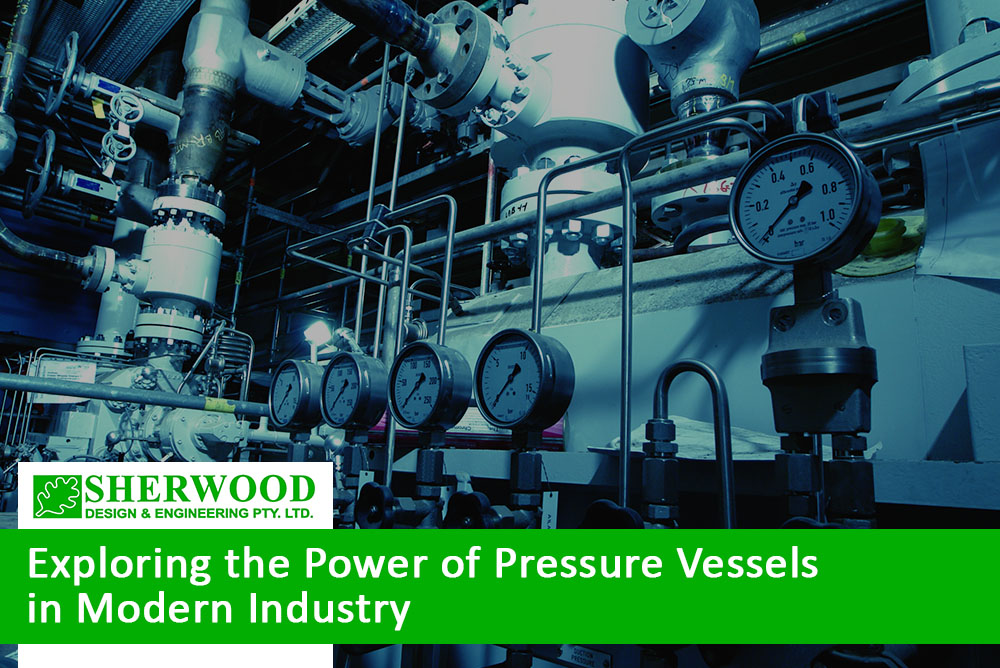
Pressure vessels play a crucial role in the backbone of modern industry. Used to contain gases or liquids at high pressures, these robust containers are key players in a vast array of sectors, from petrochemicals to renewable energy.
Their primary function? To ensure the safe storage and precise manipulation of substances under pressure, vital for everything from creating products to maintaining safety standards. Dive deeper to discover just how these powerful tools shape industries and safeguard operations.
Historical Evolution of Pressure Vessels
The development of pressure vessels is deeply intertwined with the advances of the industrial age. Originating in the 19th century as simple containers capable of withstanding internal pressures, these vessels have undergone extensive transformations.
Innovations in material science and mechanical engineering have propelled their evolution from basic steel containers to sophisticated apparatuses employing alloys and composites designed to meet specific industrial demands. This historical progression reflects broader industrial advancements and the increasing complexity of technological needs.
Key Industries Relying on Pressure Vessels
Pressure vessels underpin the operational frameworks of several critical industries. In the oil and gas sector, they are indispensable for the refining process, essential for separating and purifying different hydrocarbons.
The chemical industry relies on these vessels to maintain reactants under necessary conditions to drive chemical reactions, while in pharmaceuticals, they ensure the integrity and sterility of drug formulations. The power generation sector, particularly nuclear and thermal power plants, utilises these vessels in core reactors and steam generators, highlighting their versatility and critical nature.
The Engineering Behind Pressure Vessels
The engineering of pressure vessels is a discipline that demands precision. Design considerations include the choice of material, which must exhibit resistance to corrosion, endure the specific type of stress, and react predictably under extreme conditions.
Mechanical engineers utilise advanced design software to simulate the conditions that vessels will face, optimising structures to prevent failure. Adherence to international codes like the ASME Boiler and Pressure Vessel Code ensures each design meets rigorous safety and efficiency standards.
Safety Protocols for Pressure Vessels
Safety remains the paramount concern in the use of pressure vessels, given the potential for catastrophic failure. Protocols entail rigorous testing and regular inspections to identify wear and tear or corrosion before they lead to structural failure.
Techniques such as acoustic emission testing and thermographic inspections are part of a broader strategy to preemptively address risks, ensuring a high standard of operational safety and compliance with global safety regulations.
Innovations in Pressure Vessel Technology
Technological advancements have significantly impacted the design and functionality of pressure vessels. The adoption of composite materials, for instance, has offered ways to reduce weight while maintaining or enhancing pressure containment capabilities.
Innovations extend to the integration of sensors and smart monitoring systems, allowing for real-time health assessments of vessels. These systems predict maintenance needs, optimise performance, and enhance the overall safety of operations.
Environmental Impacts and Considerations
Environmental considerations are increasingly at the forefront of industrial operations utilising pressure vessels. There is a growing emphasis on designing vessels that minimise environmental impact, whether through improved efficiency, reduced emissions, or the use of environmentally friendly materials.
For instance, vessels designed for CCS technologies support environmental goals by capturing and storing CO2 emissions effectively.
Regulatory Standards and Compliance
Regulatory compliance is crucial in the design, operation, and maintenance of pressure vessels. International standards, such as those issued by the ASME and the International Organisation for Standardization (ISO), dictate stringent compliance to ensure safety across all uses.
These regulations are not static; they evolve to incorporate the latest safety findings and technological innovations, reinforcing the industry’s commitment to safe and sustainable operations.
Case Studies: Successes and Failures
Exploring specific case studies of pressure vessels highlights their impact and the importance of rigorous safety protocols. For instance, the 2010 Anacortes refinery explosion, resulting from a pressure vessel failure, underscores the potential dangers and reinforces the need for strict adherence to safety practices.
In contrast, successful applications in space technology demonstrate the reliability of well-designed pressure vessels, crucial for the containment of fuels and life-supporting atmospheres in harsh extraterrestrial environments.
Future Trends in Pressure Vessel Design and Use
Future trends in pressure vessel technology point toward increasing integration with digital technologies and the continued push for materials that are stronger, lighter, and more environmentally sustainable.
The potential development of smart pressure vessels, which not only contain and maintain substances but also actively monitor and respond to environmental changes, could revolutionise the field. Additionally, as industries strive for greater sustainability, pressure vessels will play a key role in new green technologies.
Final Thoughts: The Indispensable Role of Pressure Vessels
The exploration of pressure vessels reveals their critical role in supporting and advancing modern industrial operations. As industries evolve and new challenges emerge, the development of pressure vessels will continue to be a focal point of innovation.
Their ability to operate safely and efficiently under high-pressure conditions is not just a technical requirement but a necessity that spans across multiple sectors, emphasising their indispensable role in the global industrial landscape.
This ongoing evolution underscores the continuous need for advancements in pressure vessel technology, ensuring they remain integral to industrial success and safety.
Choose Sherwood Engineering For Pressure Vessel Design
With over 40 years of experience in engineering design services, Sherwood Design & Engineering is committed to delivering excellence in pressure vessel design, manufacturing, and support services. Our team of qualified engineers, designers, and consultants are dedicated to meeting the unique needs of various industries, ensuring compliance with regulations, and providing innovative solutions that enhance safety and performance.
Give us a call at (02) 9437 3566 or leave an enquiry if you would like to learn more about our pressure vessel engineering design and support services.
